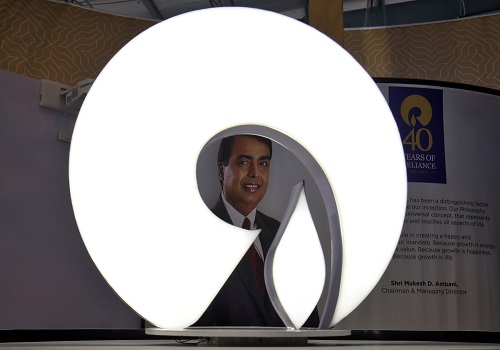Markets witness sharp sell-off on Friday; Nifty Below 14,550 mark - Nirmal Bang Ltd

Follow us Now on Telegram ! Get daily 10 - 12 important updates on Business, Finance and Investment. Join our Telegram Channel
Indian equity benchmarks witnessed a sharp sell-off on Friday, mirroring losses in other global markets as a rout in global bond markets sent yields flying and spooked investors amid fears the heavy losses suffered could trigger distressed selling in other assets. Frontline gauges settled below their crucial 49,100 (Sensex) and 14,550 (Nifty) levels. Markets, after a gap-down start, traded with pessimism throughout the session, as traders remained concerned ahead of the Q3 gross domestic product (GDP) data, to be released later in the day, which will shed light on whether the economy continued to be in recession in the third quarter of FY21 or it ended with the second quarter only. Sentiments also remained dampened with Moody's Investors Service stating that loans to retail customers, especially those to low-income borrowers, will remain most affected due to the shock caused by the coronavirus pandemic.
Benchmarks continued to witness intense selling pressure in late trade amid reports that capital markets regulator Sebi chairman Ajay Tyagi acknowledged the systemic risk concerns raised by the RBI and Financial Stability Board over a disconnect between markets and the real economy, but said that this is a global phenomenon also observed in India. He said that after the massive fall in markets in March 2020, a strong rebound starting from April was the sharpest V-shaped recovery in the last 30 years. Traders also took a note of WTO review report stated that India's trade policy had remained largely unchanged since the previous review (in 2015), with continued heavy reliance on instruments such as the tariff, export taxes, minimum import prices, import and export restrictions, and licensing. On customs duties, it said, concerns were expressed with respect to its complexity and uncertainty, the increase in tariff rates, tariff preferences and tariff concessions.
On the global front, European markets were trading lower, as revised data from the statistical office Insee showed the French economy contracted more than initially estimated in the fourth quarter. Due to the second national lockdown and curfews, gross domestic product fell 1.4 percent sequentially in the fourth quarter. This was slightly bigger than the 1.3 percent fall estimated on January 29. The economy had rebounded 18.5 percent in the third quarter. Asian markets ended lower on Friday, following the negative cues from Wall Street as investor concerns about soaring bond yields are renewed, which could lead to the Federal Reserve having to raise interest rates sooner to keep inflation contained.
Back home, on the sectoral front, pharma stocks were in focus as Union Minister for Chemicals & Fertilisers D V Sadananda Gowda said the government is continuously working to reduce regulatory compliance burden on the pharma industry in a bid to improve ease of doing business in the country. Auto component industry’s stocks too were buzzing with Automotive Component Manufacturers Association of India (ACMA) stating that the domestic auto component industry is expected to log in double-digit growth next fiscal, as demand picks up month on month after a prolonged period of downturn.
Finally, the BSE Sensex fell 1939.32 points or 3.80% to 49,099.99, while the CNX Nifty was down by 568.20 points or 3.76% to 14,529.15.
The BSE Sensex touched high and low of 50,400.31 and 48,890.48, respectively. All 30 stocks were declining on the index
The broader indices ended in red; the BSE Mid cap index fell 1.75%, while Small cap index was down by 0.74%.
The top losing sectoral indices on the BSE were Bankex down by 4.87%, Finance down by 4.59%, Telecom down by 3.85%, Oil & Gas down by 3.72% and Auto down by 3.10%, while there were no gaining sectoral indices on the BSE.
The top losers on the Sensex were ONGC down by 6.60%, Mahindra & Mahindra down by 6.35%, Axis Bank down by 5.98%, Kotak Mahindra Bank down by 5.96% and Bajaj Finserv down by 5.95%.
Meanwhile, Global rating agency Moody’s in its latest report has said that India's Budget is tilted towards supporting growth and the fiscal deficit target of 6.8 percent for 2021-22 is realistic. With regard to India's finances, it said weak fiscal position will remain a key credit challenge in 2021. It noted that the government's fiscal deficit for 2020-21 and 2021-22 should be lower than projected, supported by stronger revenue generation in ongoing March quarter and higher nominal GDP growth in the next fiscal year.
According to the report, wide fiscal deficits combined with lower real and nominal GDP growth over the medium term will constrain the government's ability to reduce its debt burden. It also said the prospects for fiscal consolidation remain weak particularly given the government's mixed track record of implementing revenue-raising measures. It said although the government has not provided an explicit medium-term fiscal consolidation road map, the budget targets a fiscal deficit of 4.5 per cent of GDP by fiscal 2025-26, which amounts to an average annual deficit reduction of about 0.5 per cent of GDP over four years.
It further said given India's very high debt burden, this gradual pace of consolidation will prevent any material strengthening in the government's fiscal position over the medium term, unless nominal GDP growth picks up sustainably to reach much higher rates than historically recorded.
The CNX Nifty traded in a range of 14,919.45 and 14,467.75. All 50 stocks were declining on the index.
The top losers on Nifty were ONGC down by 6.64%, Mahindra & Mahindra down by 6.53%, Power Grid Corporation down by 6.46%, JSW Steel down by 6.35% and Hero MotoCorp down by 6.33%.
European markets were trading lower; UK’s FTSE 100 decreased 23.57 points or 0.35% to 6,628.39, France’s CAC fell 17.48 points or 0.3% to 5,766.41 and Germany’s DAX was down by 17.25 points or 0.12% to 13,862.08.
Asian markets ended lower on Friday, tracking global sell-off following a spike in US bond yields. Further, fears of inflation too added pressure on market sentiments. Moreover, Japanese shares ended sharply lower, logging its biggest point decline since June 2016, as a spike in Japanese long-term bonds triggered worries about market stability and possible changes to monetary easing. Data showed the yield on the benchmark 10-year Japanese government bond briefly rose to 0.175 percent before finishing at 0.160 percent, up 0.020 percentage point from Thursday's close.
Above views are of the author and not of the website kindly read disclaimer










Tag News

Weekly Market Analysis : Markets strengthened recovery and gained nearly 2% in the passing w...














